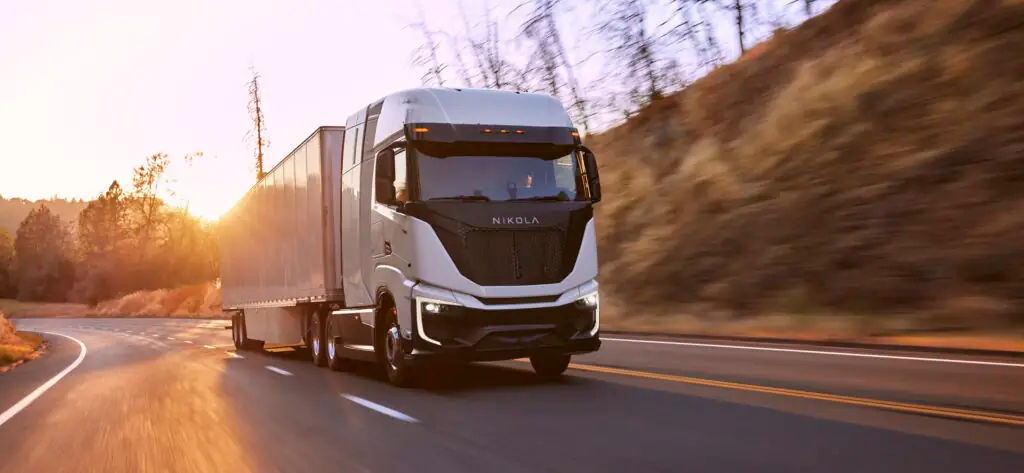Nikola Corp., once hailed as a rising star in the electric vehicle industry, has filed for Chapter 11 bankruptcy protection, marking the end of a dramatic rise and fall.
The company, which once boasted a market valuation higher than Ford’s, failed to secure additional funding or find a buyer to keep its operations afloat.
On Wednesday, Nikola announced that it will pursue an auction and sale of its assets, pending court approval.
The company has approximately $47 million in cash to fund its bankruptcy proceedings and exit Chapter 11.
The bankruptcy filing listed liabilities of between $1 billion and $10 billion, putting the number of creditors it owes at between 1,000 and 5,000.
“Like other companies in the electric vehicle industry, we have faced various market and macroeconomic factors that have impacted our ability to operate,” Nikola CEO Steve Girsky said in a release.
“Unfortunately, our very best efforts have not been enough to overcome these significant challenges, and the Board has determined that Chapter 11 represents the best possible path forward under the circumstances for the Company and its stakeholders.”
Nikola’s spectacular rise and steep fall
Founded with ambitious plans to revolutionize the trucking industry, Nikola gained widespread attention in 2020 when it went public through a special purpose acquisition company (SPAC) led by Girsky.
At its peak, Nikola secured a $30 billion valuation, signed a major deal with General Motors, and symbolized the future of electric trucking.
However, the company’s momentum was short-lived.
Later that year, short-seller Hindenburg Research published a damning report accusing Nikola and its founder, Trevor Milton, of misleading investors about the company’s capabilities.
The controversy led to Milton’s resignation, and in 2022, he was convicted of wire fraud and securities fraud for misrepresenting Nikola’s technology and production readiness.
The fallout from the scandal severely damaged Nikola’s credibility and financial health.
Despite efforts to push forward, the company struggled with cash flow issues and weak demand for its vehicles.
How production, recalls, and financial strain brought the company down
Nikola began producing all-electric and hydrogen fuel cell semi-trucks in 2022, but progress was slow.
By the third quarter of last year, the company had produced just 600 vehicles, many of which were later recalled due to defects.
The recalls, combined with limited production capacity, drained Nikola’s finances, costing the company tens of millions of dollars.
Even under Girsky’s leadership, Nikola could not reverse its downward trajectory.
The company warned investors last year that it only had enough cash to survive into the first quarter of 2025.
As of its last financial report, Nikola had just $198 million in cash, a fraction of what it needed to continue operations.
Girsky had repeatedly stated that Nikola was in discussions with potential partners, but those talks failed to result in a deal.
Without new funding or a strategic partner, bankruptcy became the only option.
Nikola’s downfall: a cautionary tale in the EV industry
Nikola’s downfall is the latest in a series of struggles for electric vehicle start-ups.
Many companies that went public through SPACs in recent years have failed to live up to expectations.
Lordstown Motors, which aimed to manufacture electric pickup trucks in an old General Motors plant, filed for bankruptcy in 2023 and was later charged with misleading investors.
British EV start-up Arrival sold its assets to another struggling company, Canoo, before Canoo itself filed for bankruptcy last month.
Other EV makers, while still operational, are facing severe financial challenges.
Rivian, which once traded at over $130 a share, now hovers below $13 as it struggles to scale production.
The company secured a crucial investment from Volkswagen last year, providing some relief.
Lucid Motors, another high-profile EV start-up, has also fallen far short of its production and sales goals, pushing it to explore licensing deals with traditional automakers.
Nikola’s bankruptcy serves as a stark reminder that the transition to electric vehicles remains fraught with financial and operational hurdles.
While legacy automakers have the resources to weather industry headwinds, start-ups with ambitious goals but limited capital are finding it increasingly difficult to survive.
The post Nikola files for chapter 11 bankruptcy as cash flow issues, weak demand for vehicles take a toll appeared first on Invezz

